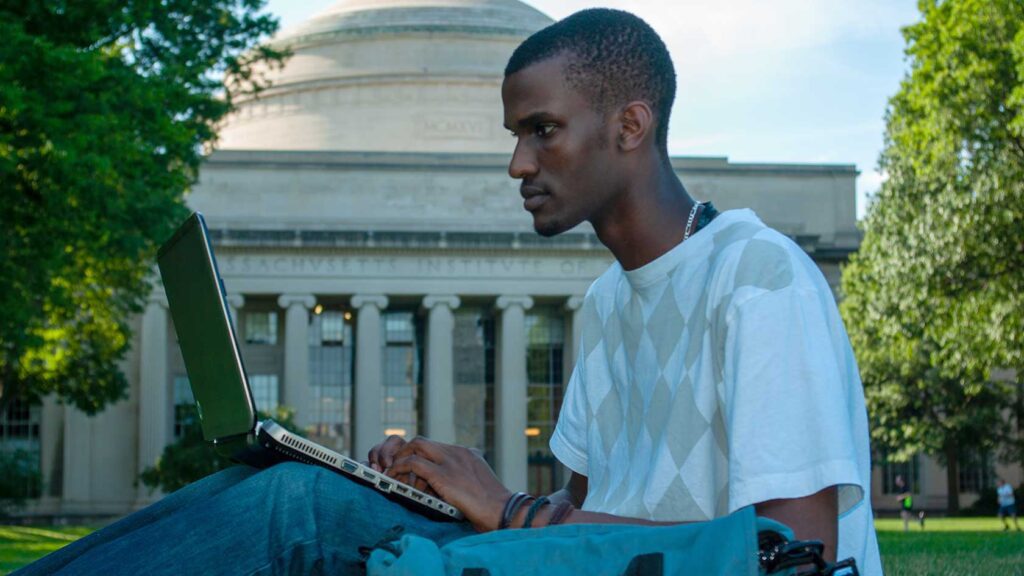‘Brief Tender Light’ Documents the stories of African MIT students

Ghanaian filmmaker Arthur Musah came to the United States 20 years ago to study at MIT. Adapting to the culture, from the challenges of the university classroom to the country’s complicated relationship with race, was an immense challenge. Last week, Musah’s film “Brief Tender Light” premiered at the Newburyport Documentary Film Festival, exploring these themes by telling the stories of four African MIT students grappling with many of the same questions.
“At its core, ‘Brief Tender Light’ is about whether youthful idealism can survive the process of growing up,” says Musah. “How does a new world become home? How does a Black African become aware of racism in America? How does one’s identity shift and how do different people weigh living for their community’s expectations versus their own desires?”

Sante, Fidelis, Billy and Philip (left to right), dressed in graduation caps and gowns, walk on the MIT campus. PHOTO: ARTHUR MUSAH
The film follows the four subjects for nearly 10 years in order to properly explore how these cultural shifts during college affected each person into their careers and their postgraduate lives. Part of the film project involved Musah going with each student back to their home country to document and understand the cultures they were coming from and their reasons for attending MIT.
“The story of international students, or specifically African students, in the U.S. hadn’t really been told,” says Musah. “Stats that I’ve learned more recently say there are about a million international students in any given year studying in the U.S., of which about 40,000 are African. That seems like a substantial portion of the fabric of American society.”
Musah did notice significant differences between his own experience and that of the students. For one thing, the dialogue about race in America had become much more global, in part due to the spreading of information and discourse over social media. The students in “Brief Tender Light” had much more exposure to those dynamics than he had.
“Boston obviously attracts so many college students from around the world, and Arthur’s film does a great job of giving us a glimpse inside their trials and triumphs,” says James Sullivan, program director of the Newburyport Documentary Film Festival. “It’s a very thoughtful look into what it means for the students to try to assimilate into America’s complex culture while retaining their connections with their homes and families.”
Community expectations had not changed since Musah’s college days. In many cases, the communities students came from anticipated they would go to MIT and then bring that knowledge back to their African homes to utilize it on behalf of the community. For the students, however, giving back often looked different than what their friends and family expected.
“I am hoping that people reconnect with the younger versions of themselves that had this youthful idealism, which is what we’re referring to in the film’s title,” says Musah. “I hope people are inspired.”







